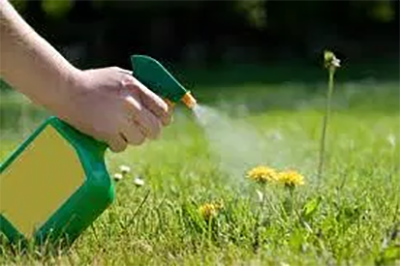Spring time for activism on glyphosate
Published on February, 29 2016
By Marybeth Gardam, Corporations v Democracy Issue Committee Chair
With the public and retailers focused on planting season, now’s the perfect time to begin using the Human Right To Health & Safe Food Campaign’s excellent resources and organizing tools.
On the Human Right To Health & Safe Food (HRTH&SF) website link there are sample letters and advice for organizing letter writing campaigns, a leave-behind Infographic Card to explain the toxicity of glyphosate (recently called a “probable human carcinogen” by the World Health Organization), a community survey with “how-to instructions” for organizing, a sample media release, and directions for ordering a kit to test the level of glyphosate in community water supplies and in the breastmilk of local nursing mothers, articles, videos, and much more.
The INFOGRAPHIC CARDS, printed with WILPF US mini grant support, are available to order at a very nominal cost on the HRTH website link and are excellent to hand to legislators, hardware store managers, Department of Public Works managers, farmers, local lawn care companies, and even neighbors who spray glyphosate in their yards. These cards have been ordered by over 21 branches so far, some branches ordering as many as 500, and the demand continues. Use these cards to distribute at these upcoming events:
February 14-21 is Congressional Recess - Visit your local senator and representative to ask for a “NO Vote” on the Trans Pacific Partnership (TPP). Hand them the HRTH&SF Infographic and explain how the TPP will force cooperating nations to purchase GMO seeds, increasing the spread of glyphosate and other toxic herbicides and create more “superweeds” and “superbugs.”
Emphasize that glyphosate is now deemed a “possible human carcinogen” and must be banned from the market to protect public health and our ecosystems.
(If you also order and hand them the CLIMATE JUSTICE+WOMEN+PEACE Project Infographic Card, you will also tie together the TPP’s impact on climate change, human rights, refugees, resource, conflict, militarism and human trafficking. Order at mbgardam@gmail.com)
March 22 is World Water Day – Build the argument for keeping glyphosate out of our water supplies and water streams. Don’t forget to raise the issue of old, neglected and decaying water infrastructure as a health threat, and the impact of water privatization as the Flint and Detroit Michigan demonstrates. This is the direct result of decades of tax cuts for the wealthy that provide less support for basic human services… and it’s often an effort to move towns and municipalities towards water privatization projects.
April 22, Earth Day, will be celebrated around the world with expos, fairs and festivals. Use our HRTH&SF Infographic Cards to table and get the message out to people to press for a worldwide ban on Roundup and glyphosate, and to campaign against the TPP, which promotes GMO crops dependent on glyphosate and other dangerous ag chemicals.
LOCAL PARTNERSHIPS EXPAND THE MESSAGE – If you’ve already ordered and used our Infographic Cards in your community, consider ordering more and visiting your local allies to offer them the chance to know about and utilize the cards and tools provided on the HRTH&SF website and the CLIMATE JUSTICE+WOMEN+PEACE pages of the Earth Democracy Committee at the WILPUS website.
Glyphosate has been linked to a variety of serious and life-threatening birth defects and diseases. It is sprayed ubiquitously on “Roundup Ready” genetically modified food crops and appears in high levels in much of the country’s processed foods, too! Many nations have banned GMO seeds, crops and herbicides that contain glyphosate. Monsanto, the maker of Roundup and “Roundup Ready” GMO seeds, has spent millions to promote Roundup, even while aware for decades of the serious health risks it poses. And Monsanto’s lobbyists have successfully linked Roundup and GMO seeds to foreign trade deals, including the Trans Pacific Partnership (TPP), foreign aid packages and World Bank loans. The Human Right To Health & Safe Food Campaign of WILPF US is tied directly to issues with the TPP, climate change impact, resource conflicts, and food and water shortages that fuel violence and war. his campaign is an excellent example of how local action is tied to global issues.
PHOTO: Gardeners need to be aware of the dangers of glyphosate weed killers.



